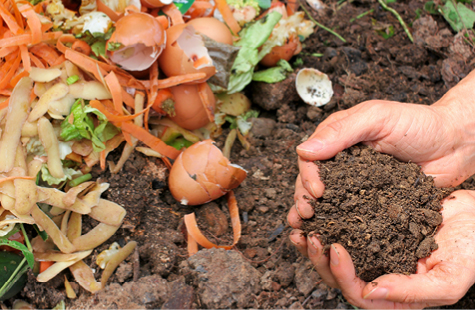
Letter to Governor and DEP Commissioner requests infrastructure and funding for composting
Massachusetts: While residents across the Commonwealth have just experienced a record-breaking heatwave in some areas, municipal officials are acting on a less-often-discussed contributor to the climate crisis: food waste. Fifty-one municipal officials from 17 cities and towns across Massachusetts made that connection and urged the state to take action in a letter delivered this week to Governor Maura Healey and Department of Environmental Protection (MassDEP) Commissioner Bonnie Heiple.
While landfill space in Massachusetts is rapidly filling up, food waste decomposing in landfills produces methane, a potent greenhouse gas. And according to EPA data, landfills are one of the largest sources of methane emissions in the Bay state. MassDEP estimates that food waste accounts for more than 25 percent of the waste stream after recycling, or over 1 million tons per year.
“We ask the State to put in place concrete plans, funding and technical assistance to increase composting infrastructure, working in partnership with communities like ours to divert food waste and minimize the climate impact of discarded food. An expansion of sustainable waste management practices will benefit our residents and our economy. Communities like ours are ready to partner with the state to expand composting in MA,” states the letter.
The 51 signers represent the following 17 communities:
Agawam
Greenfield
New Bedford
Saugus
Worcester
Boston
Lawrence
Newton
Somerville
Chelsea
Lynn
Northampton
Taunto
Everett
Malden
Revere
Waltham
"Municipalities across the state are leading by building waste diversion programs that address the climate crisis effects of landfilling food waste. We need the resources to build out these programs into comprehensive municipal services that make it easier and affordable for working class communities and their residents to partake in reducing methane emissions and meeting out the Commonwealth's emissions goals." - said Juan Pablo Jaramillo, Revere City Councilor At-Large.
“Methane poses significant health and environmental risks and is the second largest contributor to climate change which disproportionately affects our most vulnerable communities,” said Amber Schmidt, Zero Waste Organizer at Clean Water Action, who helped coordinate the letter. “Diverting organic waste from landfills will prevent the unnecessary release of methane while providing numerous benefits such as compost for healthy soil and new green jobs.”
Massachusetts currently generates over 6 million tons of waste per year, with a growing percentage exported to other states. In 2024, Clean Water Action and MASS PIRG launched a campaign called Plate to Planet with a goal of reducing food waste and diverting all organics from disposal. To reach the goals in its 2030 Solid Waste Master Plan, the state must more than double its rate of food diversion from landfills and incinerators.
###
Since the organization’s founding during the campaign to pass the landmark Clean Water Act in 1972, Clean Water Action has worked to win strong health and environmental protections by bringing issue expertise, solution-oriented thinking, and people power to the table. www.cleanwater.org